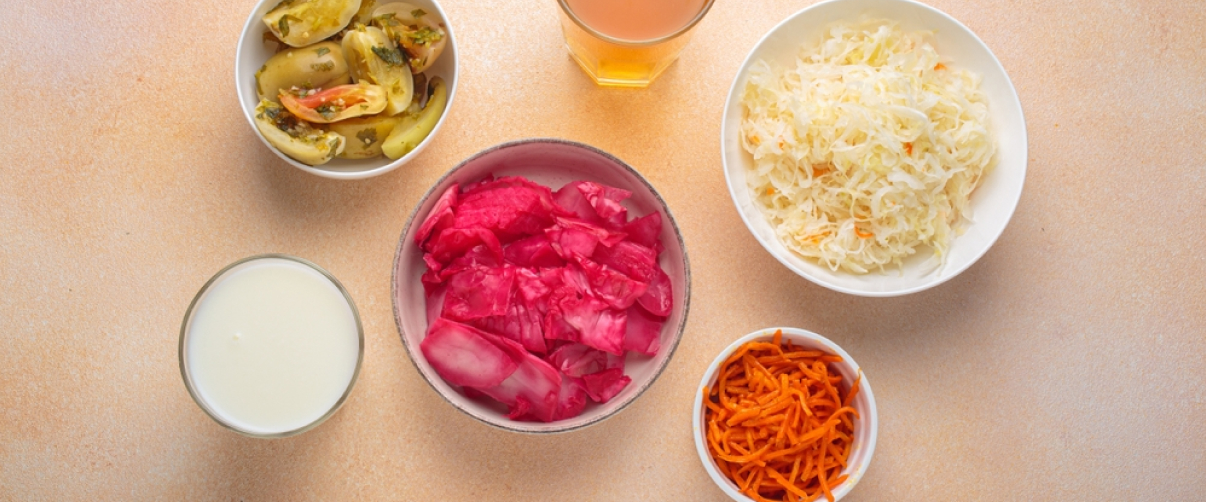In recent years, the importance of gut health has taken center stage in discussions about overall well-being. The gut microbiome—a complex community of trillions of microorganisms living in our digestive tract—not only aids in digestion but also plays a crucial role in immunity, mental health, and disease prevention. Understanding how to nourish this “supporting organ” is key to promoting a healthy microbiome and, by extension, a healthier you.
Gut Health and Nutrition: Foods That Promote a Healthy Microbiome

Understanding the Gut Microbiome
The gut microbiome consists of diverse bacteria, viruses, fungi, and other microorganisms residing in the digestive tract. Each person’s microbiome is unique, initially influenced by DNA and further shaped by diet and environment. According to research, “a large variety of bacteria in the gut can help reduce risks of conditions like inflammatory bowel disease (IBD) and psoriatic arthritis, among other health issues.” (source)
These microbes perform vital functions such as aiding digestion, synthesizing vitamins, regulating the immune system, and even influencing mental health. An imbalance in the gut microbiome—known as dysbiosis—can lead to various health issues, including digestive disturbances, weakened immunity, and increased risk of chronic diseases.
Factors Affecting Gut Health
Diet
Diet is one of the most significant factors influencing the gut microbiome. Consuming a diet “high in processed foods and sugars can decrease good bacteria and increase inflammation,” which might lead to diseases like cancer. (source)
Conversely, a diet rich in fiber, polyphenols, and healthy fats fosters a beneficial microbial community. For instance, “diet, particularly one rich in fiber, significantly influences the microbiome, favoring beneficial bacteria that produce short-chain fatty acids (SCFAs).” (source)
Lifestyle Factors
High stress levels, inadequate sleep, lack of exercise, and antibiotic overuse can negatively impact gut health. “Modern lifestyle factors like high stress levels, insufficient sleep, diets rich in processed and sugary foods, and antibiotic use” can disrupt the microbiome balance. (source)
Foods That Promote a Healthy Microbiome
1. High-Fiber Foods
Fibrous foods serve as fuel for beneficial gut bacteria. “High fiber intake from foods like legumes, whole grains, and vegetables supports a healthy gut.” (source)
Fiber cannot be digested by human enzymes, so it reaches the colon intact, where it is fermented by gut microbes, producing SCFAs that support gut health.
Examples of high-fiber foods:
- Whole grains (oats, brown rice, quinoa)
- Legumes (beans, lentils, chickpeas)
- Fruits (apples, bananas, berries)
- Vegetables (broccoli, Brussels sprouts, artichokes)
2. Prebiotic Foods
Prebiotics are specific types of fiber that feed the friendly bacteria in the gut. Foods high in prebiotic fibers include “garlic, onions, leeks, asparagus, bananas, and whole grains.” (source)
Including these foods in your diet can promote the growth of beneficial microbiota.
3. Probiotic Foods
Probiotics are live beneficial bacteria that can be consumed through fermented foods. “Probiotics are live beneficial microbes found in fermented foods like yogurt and kimchi.” (source)
Examples of probiotic-rich foods:
- Yogurt with live cultures
- Kefir
- Kimchi
- Sauerkraut
- Miso
- Tempeh
4. Fermented Foods
Fermented foods undergo a process that produces live cultures beneficial to gut health. For example, “kefir (a fermented milk drink) offers a high count of beneficial bacteria.” (source)
Similarly, kombucha, a fermented tea, provides live microbes that can aid digestion.
5. Healthy Fats
Consumption of healthy fats like those found in olive oil can reduce gut inflammation and support beneficial bacteria. “Olive oil is also associated with increased production of SCFAs,” which are linked to various health benefits. (source)
6. Polyphenol-Rich Foods
Polyphenols are plant compounds that have numerous health benefits, including promoting gut health. They act as antioxidants and support the growth of beneficial bacteria. Foods rich in polyphenols include:
- Berries
- Green tea
- Dark chocolate
- Red wine (in moderation)
- Nuts
Diets Beneficial for Gut Health
Mediterranean Diet
The Mediterranean diet emphasizes the consumption of fruits, vegetables, whole grains, legumes, nuts, and olive oil. This diet is rich in fiber and polyphenols, which nourish beneficial gut bacteria and promote a diverse microbiome. Following this diet “improves health but can be challenging to maintain.” (source)
Plant-Based Diets
Diets high in plant-based foods provide ample fiber and nutrients that support gut health. Incorporating “a wide variety of plant foods can enhance microbial diversity and function.” (source)
Lifestyle Practices for Gut Health
Stress Management
Chronic stress can negatively impact the gut microbiome. Practices such as mindfulness, meditation, yoga, and engaging in enjoyable activities can help reduce stress levels. “Reducing stress and ensuring adequate sleep” are important for maintaining a balanced microbiome. (source)
Regular Exercise
Physical activity has been shown to increase microbial diversity. “Exercise increases microbiome diversity.” (source)
Incorporating regular exercise into your routine can contribute to a healthier gut.
Adequate Sleep
Sleep deprivation can disrupt the gut microbiome. Prioritizing quality sleep supports gut health and overall well-being. “Sleep deprivation may negatively affect your gut microbiome,” highlighting the importance of sufficient sleep. (source)
Responsible Antibiotic Use
While antibiotics are sometimes necessary, overuse can harm beneficial gut bacteria. It’s important to use antibiotics only when prescribed by a healthcare professional and to follow their guidance on maintaining gut health during and after antibiotic treatment.
Potential Immediate Benefits
Nurturing your microbiome with the right nutrients can lead to “improved bowel habits, reduced sweet cravings, better-regulated appetite, and even improved sleep within a week.” (source)
Conclusion
Nurturing your gut microbiome through diet and lifestyle choices is a powerful way to enhance your overall health. By incorporating a variety of fiber-rich, prebiotic, and probiotic foods, along with healthy fats, polyphenol-rich foods, and fermented products, you can promote a balanced and diverse microbial community in your gut. Coupled with stress management, regular exercise, and adequate sleep, these practices can lead to improved digestion, immunity, and well-being.
Enhance Your Diet with Gut-Friendly Products:
- Organic Extra Virgin Olive Oil – Buy here
- Probiotic Yogurt with Live Cultures – Buy here
- Assorted Whole Grains Pack (Quinoa, Brown Rice, Oats) – Buy here
- Fermented Foods Starter Kit (Sauerkraut, Kimchi, Kombucha) – Buy here
- Mixed Nuts and Seeds (Almonds, Walnuts, Chia Seeds, Flaxseeds) – Buy here
- Organic Green Tea – Buy here











